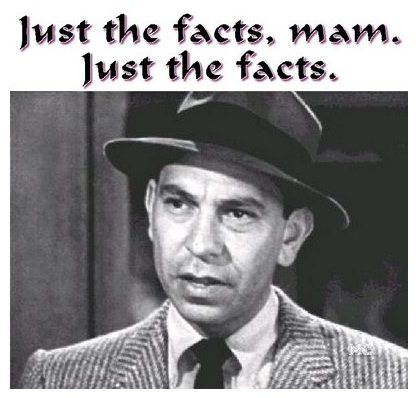Bias tends to be perceived as a character flaw, which may be why we are so ready to see it in the character of those we disagree with, while denying its existence among our allies, and certainly ourselves.
But as we’ve discussed previously, many of the toughest biases (such as confirmation bias) are just part of the human condition. And the only way I can conceive of for freeing oneself from bias entirely would be to reject having any beliefs whatsoever.
When most people accuse one another of bias, they are usually referring to partisan political bias of some sort. But bias can be a byproduct of any type of belief, including belief in things that, on the surface, seem uncontroversial.
For example, in next week’s podcast I’ll be demonstrating how a belief I suspect many of us share: the importance of teaching and learning critical thinking, can lead to bias that could distort our understanding of important news.
I’ll leave you in suspense on that argument, but in the meantime let’s take a look at two sources I singled out for praise during last week’s podcast: FactCheck.org (a site dedicated to scrutinizing the statements coming out of the campaign with the tools of non-partisan journalism) and ProCon.org (a site that provides balanced coverage of both sides of contentious political issues.
Certainly these two online information sources, whose success and reputation result from having proven themselves to not be beholden to any particular political party or ideology, can be declared free of bias, right?
Well, hold on. If we’re talking about partisan bias, then the answer is clearly yes. But there are other sorts of biases which, as I just mentioned, are often the flip side of important, even praiseworthy beliefs.
For example, FactCheck assumes as a fact of life that every statement a candidate makes needs to be double checked and rated regarding its level of accuracy. And while we can all agree this is a valuable service, this assumption carries with it the “Journalism Bias” which assumes the word of any political leader should not be trusted without third-party verification.
Now you might say this is a safe and valid assumption, and you could be right. But keep in mind that there is a continuum running between skepticism and cynicism. And even if FactCheck stays on the healthy side of skepticism, the argument its beliefs can imply is one that says we should assume we are being lied to whenever a political leader opens his or her mouth. And it’s just a small step from that assumption to a life of unexamined cynicism and, ultimately, snark.
How about ProCon? Certainly a group that makes it their business to show both sides of every issue is, by definition, unbiased. Perhaps. But what happens if there ends up being more than two sides to a particular issue? Might this type of “balanced approach” bias itself towards just picking two from these various contenders? Or might there be an automatic assumption that these multiple opinions can all be expressed as different variations on one or the other side in a structure built around balancing two (and only two) sides?
The other challenge to the ProCon approach to dealing with controversial subjects is that there exist positions (Holocaust denial and crackpot race theories come to mind) that do not deserve to be treated as “the other side” in a political argument. And yet proponents of such theories are desperate for the legitimization that comes from being accepted as just one more side in a balanced debate (“You said the Holocaust happened, I said it didn’t. Let’s both provide our evidence…”).
In truth, one of the things I like about ProCon (and FactCheck, for that matter) is that have so-far successfully navigated around these landmines, which makes me think they have given their own missions enough thought to realize that for every position worth taking, there comes a set of biases that must be recognized and controlled for.
And if we could all manage the many biases we possess equally well, we might be better at maintaining our beliefs (i.e., the things that make us who we are) without being blinded by them.




